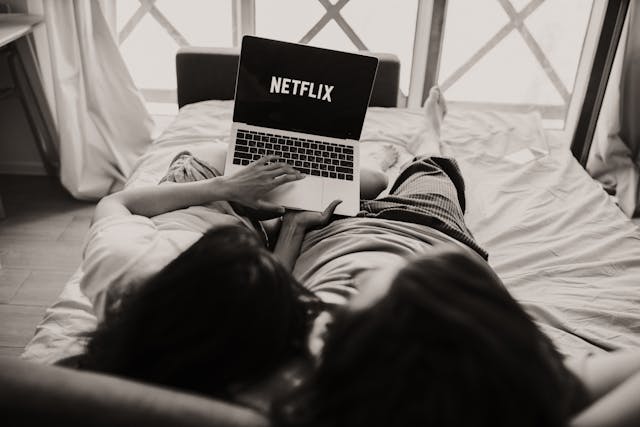
If someone had told us in March 2020 that we’d one day be looking back at the lockdown days with a weird mix of fondness and dread, we’d have laughed it off. At that point, we were still trying to figure out how to get a grocery delivery without battling the masked warrior that was the delivery person.
Fast forward a few years, and here we are in 2025, sipping tea in front of a laptop (now ironically more than before) and catching ourselves in moments of bizarre nostalgia for those long, isolating months that were as unpredictable as a TikTok trend.
Yup, we’re talking about pandemic nostalgia, that strange phenomenon where we find ourselves waxing poetic about a time when staying at home was mandatory and Netflix was the only thing keeping our social lives afloat.
If you’d told us back then that we’d miss the thrill of learning how to bake banana bread with zero knowledge of what a stand mixer was, or that we’d get sentimental about the “I’m bored” memes on Instagram, you’d have been laughed out of the WhatsApp group. But here we are.
It’s strange, isn’t it? It’s like we’ve become the generation that simultaneously can’t forget the horror of those days but also feels a sense of oddly nostalgic warmth when remembering what we were doing during that time.
“Are we really missing this?” you might ask, and the answer is yes—but not in the way we think. We’re missing the simpler, quieter moments before everything got back to the chaos of “normal life.”
And maybe, just maybe, we’re missing how we changed during the pandemic.
We’ve all seen those viral memes about 2020 that were endlessly circulated: “Remember when we thought we’d be ‘back to normal’ in two weeks?” As if. Or the meme that cleverly summed up our post-pandemic journey with, “I miss the old days when I was so depressed I didn’t even want to leave the house.” That’s the vibe, right?
Despite the grim reality, the jokes, the memes, the viral trends, and the pop-culture references that sprouted during the pandemic remain fixtures of our digital lives today. Remember the “quarantine haircuts” that were more like tragic hair disasters? Let’s be real: we were all one YouTube tutorial away from transforming our kitchen scissors into weapons of mass destruction.
But in hindsight, it wasn’t all bad. Some good things actually came out of the isolation. Take, for instance, the advent of Zoom calls. The first few were awkward—especially when someone’s cat decided to crash the screen or when you’d forget to mute yourself while gossiping about your cousin. “You’re on mute, yaar!” became a running gag in every WhatsApp group. But now, we’ve perfected the art of “Zoom etiquette” and have found comfort in virtual meetups. In fact, some of us still use Zoom to keep in touch with friends even as life has gone back to “normal,” because let’s face it, the pandemic taught us how to be socially connected, no matter how far apart we were.
And then there were the TikTok dances. Whether you were a content creator or just an observer, 2020 was the year of viral challenges. TikTok served as the ultimate platform for mindless entertainment. You’d scroll through your feed, laughing at people trying to master those slick moves, and then all of a sudden, you’d find yourself learning them. There was something oddly comforting about spending hours in front of the camera, doing the same steps to songs you couldn’t get enough of, like “Blinding Lights” by The Weeknd or “Say So” by Doja Cat. It was like we were all in this weird, collective digital party, even though we were physically apart.
And let’s not forget the true heroes of pandemic pop culture: the memes. “This is fine” with the dog sitting in the fire? Classic. Or the endless variations of “pandemic mood” memes that captured our exhausted faces as we tried to adjust to working from home and pretending we were somehow thriving. Or the meme pages that became our lifelines during the lockdown and shared everything from memes about the existential dread we felt during Zoom calls to the more relatable struggles of trying to be productive while wrapped in a blanket.
Remember suddenly becoming a pro chef? All of a sudden, everyone on Instagram was baking cakes, cooking elaborate meals, and participating in the “Feed your Soul” challenge. In the middle of all this, you couldn’t scroll through a feed without seeing someone’s attempt at making Dalgona coffee. It was like the world collectively learned how to perfect the art of frothing milk. While most of us failed miserably (I mean, who was actually able to recreate that latte art?), these “pandemic recipes” became like a rite of passage. We were all in the kitchen together, even though we were physically alone.
On a deeper level, the pandemic also made us question what we were doing with our lives. Sure, we had a ton of time on our hands, but we spent much of it scrolling through social media, wondering how our peers were managing to look so composed.
There was a bit of existential crisis involved, but there were also moments of introspection. We learned that maybe we didn’t need all the noise of everyday life to be happy. We realized that happiness was also about finding joy in small things—like a cup of coffee in the morning, or finally finishing the series everyone was talking about. If anything, the pandemic helped us see how much of our old lives we’d been taking for granted.
So, what exactly is pandemic nostalgia? Is it really about missing the days of quarantine, or is it about missing how we felt during that time? The loneliness, yes. But also the slow pace, the reflection, and the digital togetherness that allowed us to stay connected even when we were apart. It was a time of extremes—of memes and mental breakdowns, of isolation and connection, of slow mornings in bed and frantic late-night Netflix binges.
In a way, that chaotic, stillness might have been the most human we’ve ever been.
As much as we’ve moved on, the pandemic shaped our digital and social culture in ways that won’t be forgotten. It’s no surprise that lockdown nostalgia still hits hard. Whether it’s recalling how we almost made social media trends a career, or finding comfort in memes that made us laugh through the pain, these moments remind us that, even in our most isolated hours, we were all connected by something—something shared, something fleeting, and something very 2020!
~
 Share on bsky
Share on bsky
This account does not have permission to comment on Elephant Journal.
Contact support with questions.